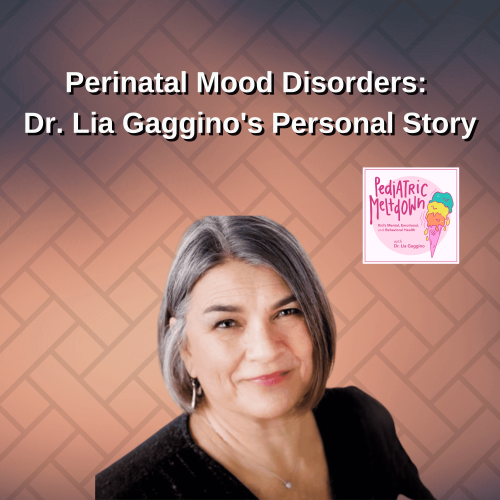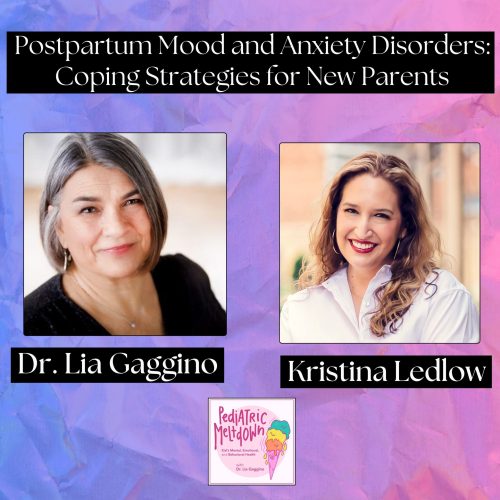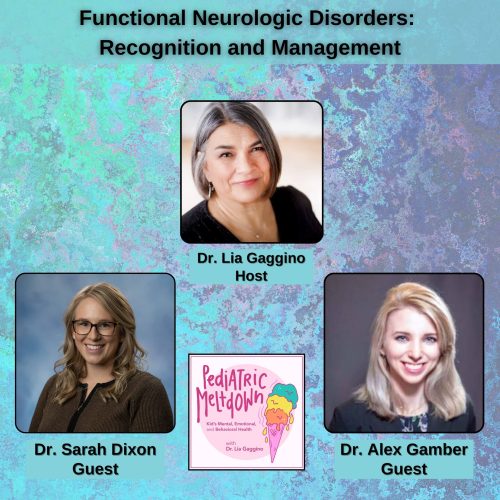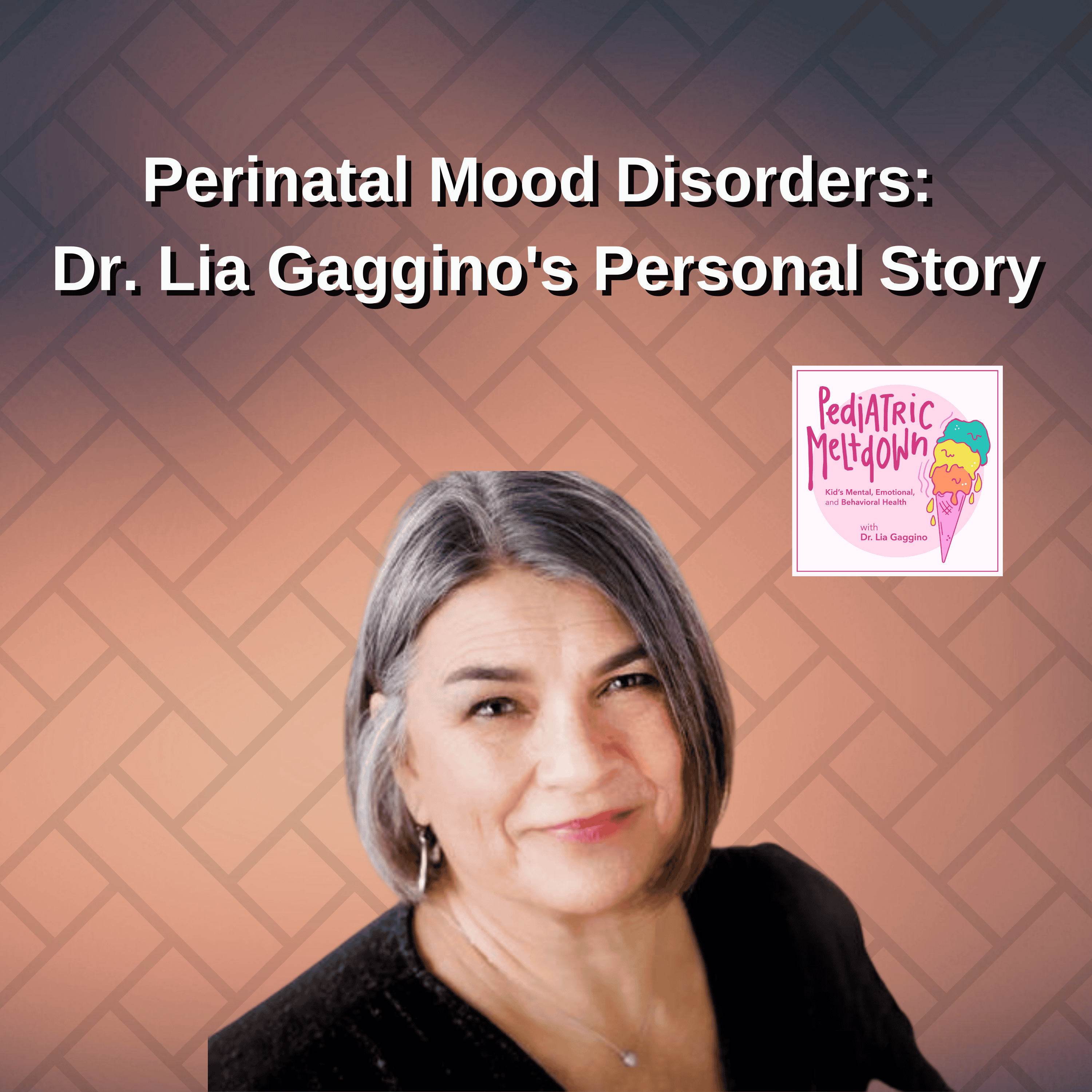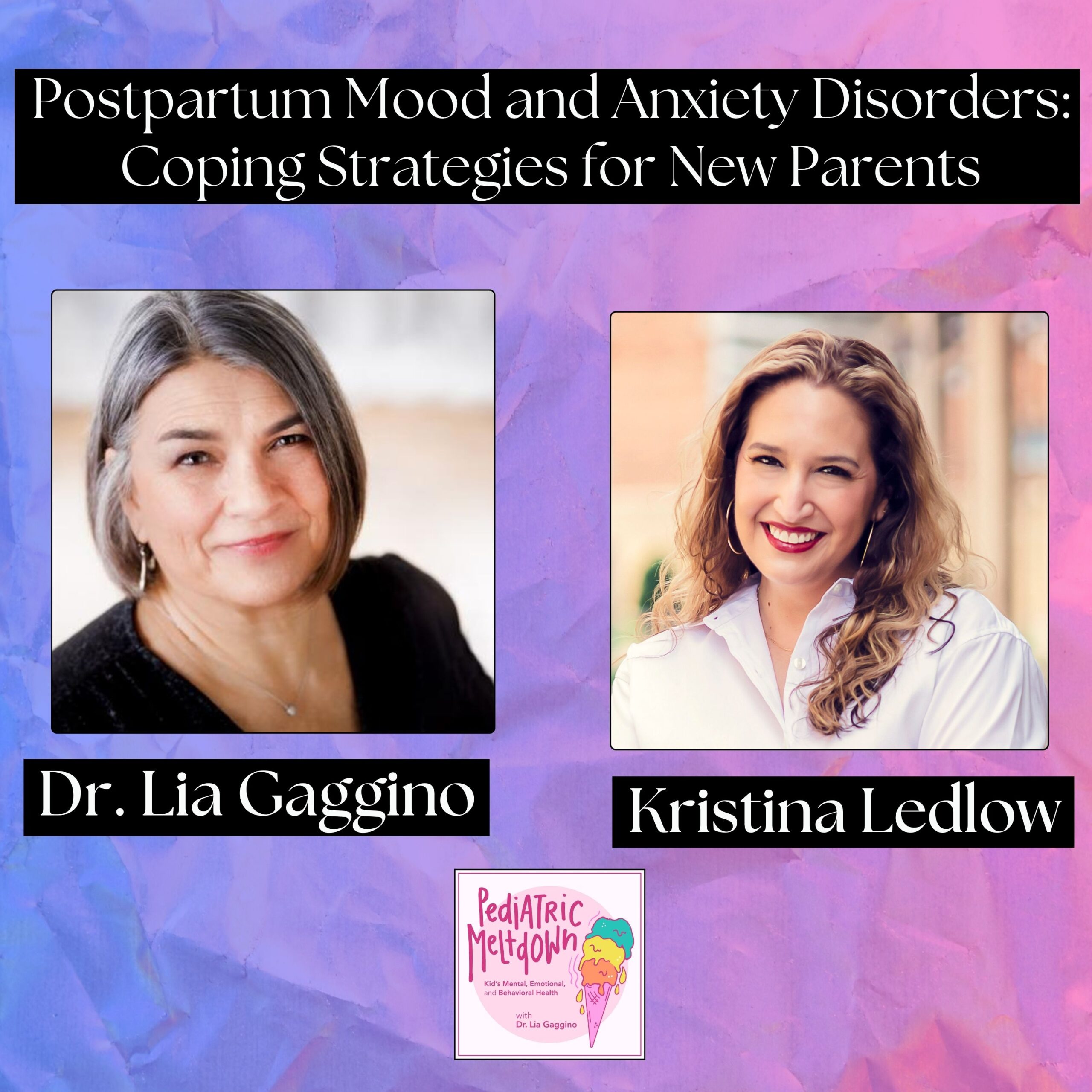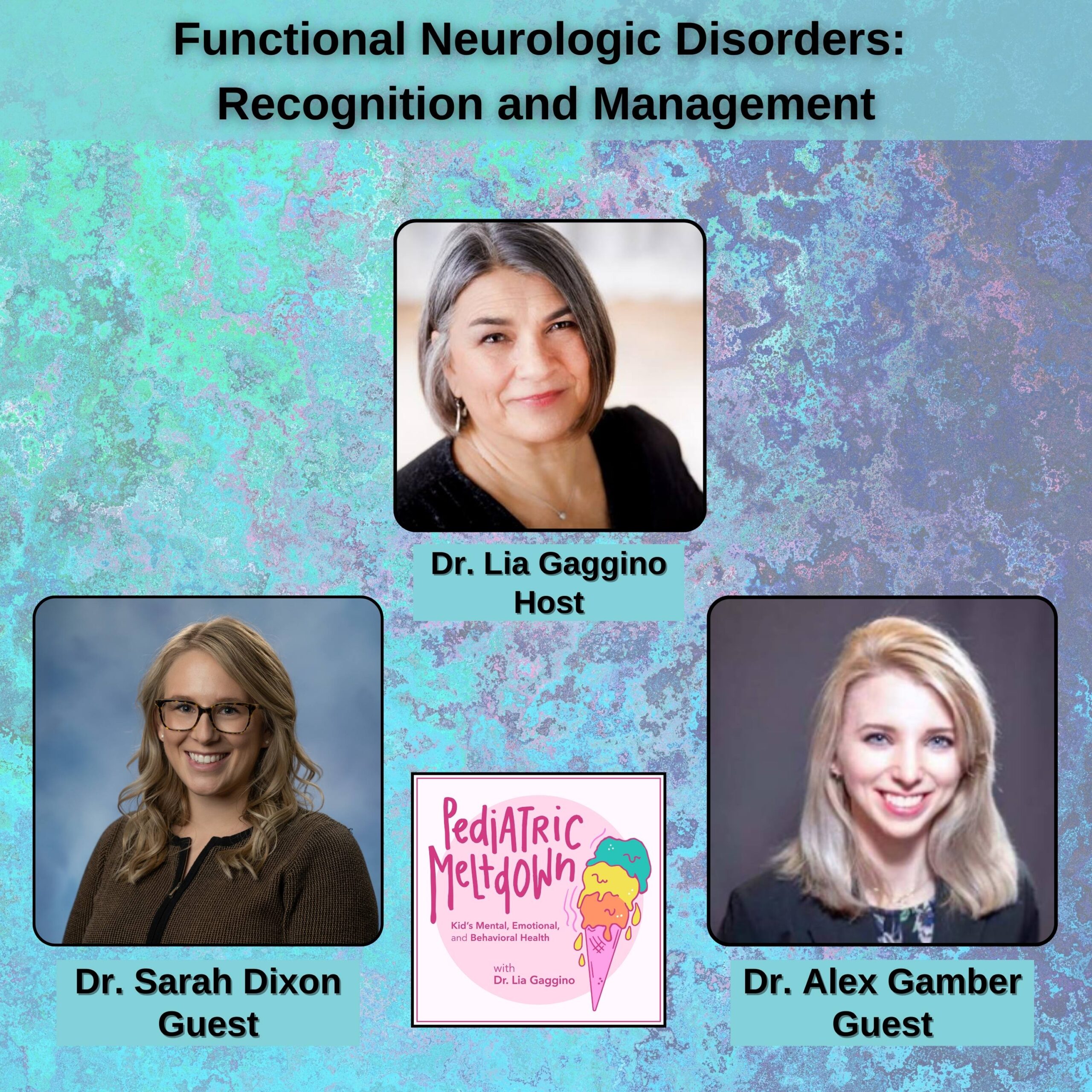TRIGGER WARNING: Please note that this episode contains a discussion of suicide, self-injurious behavior, depression and/or reference of other mental health disorders that may act as triggers.
Welcome to the Pediatric Meltdown podcast, where Dr. Lia Gaggino will take you into the world of pediatric care to tackle the most important topics that impact the well-being of our little ones. In today’s episode, Dr. Gaggino and her guest, Dr. Alejandra Arango, explore the critical role of safety planning in preventing child suicides. Their heartfelt conversation takes a deep dive into the intricacies of safety planning within various settings, highlighting the effectiveness of individualized plans, coping strategies, and community crisis resources. Creating a meaningful safety plan in just 20 minutes is not only realistic, but essential in a primary care setting. By involving all staff, from doctors to nurses to administrators, we can truly make a difference in the lives of our children. Standardized screening protocols and readily accessible safety plans in medical records make the process more feasible. Remember, a safety plan is part of a comprehensive suicide prevention approach that includes screening, assessment, evidence-based interventions, and crisis support. A unified team will provide the support and resources needed to guide our young ones through the darkest times. So, grab your headphones and get ready to learn invaluable insights that will empower you to create safe environments for our young ones, ensuring their well-being and building a brighter future.
[05:58 -17:27] Importance of Tailoring Safety Plans to Individuals
- The effectiveness of a safety plan is enhanced when the person themselves contributes ideas on how to distract or cope with distressing thoughts.
- Safety plans should go beyond simply checking off boxes and should encourage open discussions about strategies for managing difficult situations.
- Providers should actively engage with patients to understand their unique warning signs and triggers.
- Safety plans should be regularly updated and revised to ensure they remain relevant and effective.
[17:28 – 28:24] Specificity in distraction strategies
- Consider options like watching videos of cats, playing a specific video game, or listening to a certain song
- Encourage team members to be specific about what engages them personally
- Highlight the importance of finding activities that pull the brain’s attention
- Suggest coloring or other activities that require focus and concentration
[28:25 – 43:57] Safe Storage of Firearms and Medications
- Proper storage methods for firearms, such as gunlocks or safes
- Separating ammunition from firearms and keeping them in secure locations
- Educating families on safe storage practices
- Discussing potential barriers and feelings associated with safe storage
- Including over-the-counter medications in safe storage practices
[43:58 – 55:06] Integrating Safety Plans into Medical Records
- Standardized screening and assessment protocols for providers
- Incorporating safety plans into the medical record system
- Easy accessibility of safety plans for healthcare professionals
- Streamlining the process of pulling up safety plans during consultations
- Ensuring safety plans are readily available for problem-solving with the youth
[55:07 – 01:04:09] Closing segment Takeaway
Links to resources mentioned on the show
Stanley Brown Safety Plan Template:
Stanley Brown Safety Plan:
CALM – Counseling Access to Lethal Means Course:
Child Psychiatry Access Programs by state:
Zero Suicide:
AAP Blueprint for Youth Suicide Prevention:
Other episodes you may like:
For all episodes, go to
Ep. 158 Preventing Youth Suicide: Risk Assessment and Management
Ep. 96 AAP Blueprint for Youth Suicide Prevention: A Roadmap
Ep. 08 Screening Youth For Suicide Risk: Can it be done in a busy pediatric practice?
Key quotes for Twitter:
“I always include the 988 number, which is the lifeline number, a number that you can call or text.'”… Dr. Alejandra Arango
“Creating a Meaningful Safety Plan in 20 minutes is realistic”… Dr. Alejandra Arango
THANK YOU FOR YOUR SUPPORT!
Pediatric Meltdown was listed as
.
If you’d like to connect with me, you can Tap the “What Are Your Thoughts” button at the top of the notes or you can find me on
, , Instagram, and , or email me at [email protected] or [email protected]. To learn more about me visit
LOVE WHAT YOU HEARD? Leave us a 5-star review so we can continue to provide you with great content. Share this episode and help people know more about children’s health and well-being.



